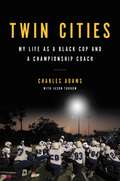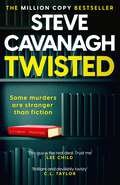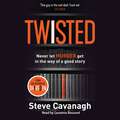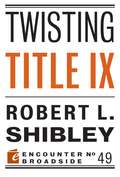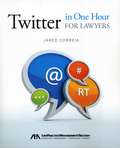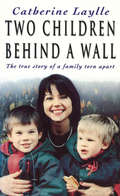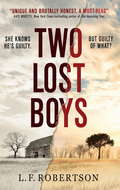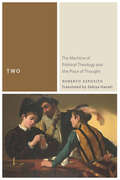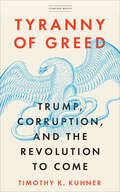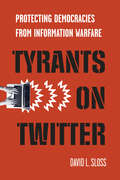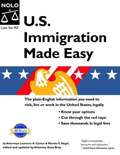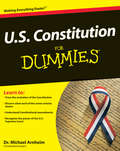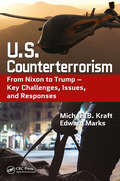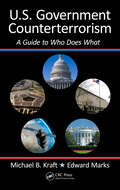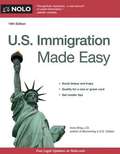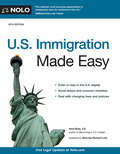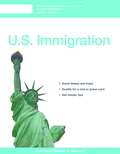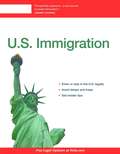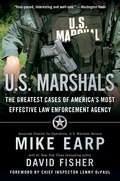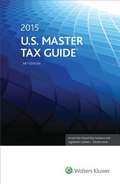- Table View
- List View
Twin Cities: My Life as a Black Cop and a Championship Coach
by Charles AdamsA Black Minneapolis cop and inner-city football coach faces racial reckoning after the murder of George Floyd inflames his city and forces him to explore the tensions in the neighborhood where he grew up. Charles Adams is a product of the Minneapolis&’s North Side, the city&’s poorest neighborhood, and of North High, the state&’s poorest school. After graduation he joined the Minneapolis Police Department, overcoming racial prejudice within its ranks to become his alma mater&’s resource officer. North High was in rapid decline, a building designed for 1,700 students down to about 200. Once the centerpiece of the community, the school was on the verge of folding. Then something magical happened. Adams stepped in as football coach, and transformed a winless team into state champions. With that success came renewed pride in the school and neighborhood both. As North High began to thrive, Adams was hailed as a model of what a Black man from a Black neighborhood might be. That lasted until Derek Chauvin murdered George Floyd, which brought a rain of chaos upon Minneapolis. Working to maintain order in a riotous city, Adams feared for his life, his relationship to his community forever changed. The memoir of a life divided, Twin Cities is the story of what happens when a man gives everything to his city in an effort to help kids envision a better future, only to have his city turn on him in response. Adams navigates the space between reality and perception, between law and justice, with the insight and wisdom he has gained from his unique experience.
Twisted: Don't let murder get in the way of a good story
by Steve CavanaghFROM THE BESTSELLING AUTHOR OF THIRTEEN'This guy is the real deal. Trust me.' Lee Child******************BEFORE YOU READ THIS BOOKI WANT YOU TO KNOW THREE THINGS:1. The police are looking to charge me with murder.2. No one knows who I am. Or how I did it.3. If you think you've found me. I'm coming for you next.After you've read this book, you'll know: the truth is far more twisted...******************'A fantastic standalone thriller. Punchy, ridiculously gripping, fast-paced, clever. Beautifully-plotted and incredibly fun to read. He's done it again. SUPERB.' Will Dean'Brilliant and devilishly twisty and turny.' C.L. Taylor'Outstanding. Totally absorbing and compelling. Amasterpiece in thriller plotting - twists and turns at a ferocious pace, leading to a nail-biting conclusion.' Mel Sherrat'Twisted and dark, another rip roaring rollercoaster ride.' Angela Clarke'Looks set to cement his status as heir apparent to John Grisham.' Daily Express'As nastily inventive as his highly successful Thirteen.' Sunday Express'A fantastic read. Guaranteed to be one of the big books of 2019. You won't be able to put this down. It's about time we found out the truth about JT LeBeau...' Luca Veste'A corkscrewing rollercoaster of thrills, switchbacks, loop-de-loops and screaming good fun. Add it to your wish list!' Mark Edwards'Steve Cavanagh must have sold his soul to the devil at the crossroads outside of Rosedale, Mississippi in exchange for becomingone of the world's best crime writers. Just read TWISTED and he's done it again. As edgy, gripping & brilliant as Thirteen. Steve is 5/5' Adrian McKinty
Twisted: Don't let murder get in the way of a good story
by Steve CavanaghFROM THE BESTSELLING AUTHOR OF THIRTEEN'This guy is the real deal. Trust me.' Lee Child******************BEFORE YOU READ THIS BOOKI WANT YOU TO KNOW THREE THINGS:1. The police are looking to charge me with murder.2. No one knows who I am. Or how I did it.3. If you think you've found me. I'm coming for you next.After you've read this book, you'll know: the truth is far more twisted...******************'A fantastic standalone thriller. Punchy, ridiculously gripping, fast-paced, clever. Beautifully-plotted and incredibly fun to read. He's done it again. SUPERB.' Will Dean'Brilliant and devilishly twisty and turny.' C.L. Taylor'Outstanding. Totally absorbing and compelling. Amasterpiece in thriller plotting - twists and turns at a ferocious pace, leading to a nail-biting conclusion.' Mel Sherrat'Twisted and dark, another rip roaring rollercoaster ride.' Angela Clarke'Looks set to cement his status as heir apparent to John Grisham.' Daily Express'As nastily inventive as his highly successful Thirteen.' Sunday Express'A fantastic read. Guaranteed to be one of the big books of 2019. You won't be able to put this down. It's about time we found out the truth about JT LeBeau...' Luca Veste'A corkscrewing rollercoaster of thrills, switchbacks, loop-de-loops and screaming good fun. Add it to your wish list!' Mark Edwards'Steve Cavanagh must have sold his soul to the devil at the crossroads outside of Rosedale, Mississippi in exchange for becomingone of the world's best crime writers. Just read TWISTED and he's done it again. As edgy, gripping & brilliant as Thirteen. Steve is 5/5' Adrian McKinty
Twisted: The Sunday Times Bestseller
by Steve CavanaghBEFORE YOU READ THIS BOOKI WANT YOU TO KNOW THREE THINGS:1. The police are looking to charge me with murder.2. No one knows who I am. Or how I did it.3. If you think you've found me. I'm coming for you next. After you've read this book, you'll know: the truth is far more twisted...Praise for Steve Cavanagh'This guy is the real deal' Lee Child'Brilliant and twisty' Ruth Ware'Smart and original' Clare Mackintosh'A fantastic thriller writer' Mark Billingham
Twisting Title IX
by Robert L. ShibleyThis is the story of how Title IX, a 1972 law intended to ban sex discrimination in education, became a monster that both the federal government and many college administrators treat as though it supersedes both the U.S. Constitution and hundreds of years of common law. It's a story about the victims of this law-men and women both-and of the unaccountable government bureaucrats at the Departments of Education and Justice who repeatedly prioritize an extreme brand of politics over free speech, fundamental fairness, and basic human decency. But while help may come too late for many of the present victims of Title IX abuse, there are still measures that colleges and courts can take to curb these abuses until Congress acts-or we see a Presidential administration that cares more about restoring justice and the rule of law than it does about sex and gender politics.
Twitter in One Hour for Lawyers
by Jared CorreiaMore lawyers than ever before are using Twitter to network with colleagues, attract clients, market their law firms, and even read the news. But to the uninitiated, Twitter's short messages, or tweets, can seem like they are written in a foreign language. Twitter in One Hour for Lawyers will demystify one of the most important social-media platforms of our time and teach you to tweet like an expert. In just one hour, you will learn to: Create a Twitter account and set up your profile Read tweets and understand Twitter jargon Write tweets and send them at the appropriate time Gain an audience follow and be followed Engage with other Twitters users Integrate Twitter into your firm's marketing plan Cross-post your tweets with other social media platforms like Facebook and LinkedIn Understand the relevant ethics, privacy, and security concerns Get the greatest possible return on your Twitter investment And much more "
Two Children Behind A Wall
by Catherine LaylleIn 1984, Catherine Laylle, a Frenchwomen living in London, met and married a German medical student, Dieter. The couple had two sons, Alexander and Constantin. When, however, at Dieter's insistence, they moved back to his home town in Germany, the marriage began to fall apart. Dieter refused to get a job, Catherine found living with his family oppressive and eventually, she returned to London with the children. The boys spent term time with their mother, holidays with their father - until the summer of 1994, when Dieter decided that his sons should be raised as Germans and, with the support of the local judge, defied the London court ruling that gave Catherine custody. Catherine went to the courts in London, Germany and the Hague - but it seemed that no court outside the jurisdiction of Lower Saxony would overrule the decision. Today, Alexander is eleven and Constantin is nine. Catherine has barely seen them in the two years since Dieter kidnapped them - and then only under the supervision of one of his friends. This is the harrowing story of a mother's attempts to regain her children, and of her desperate struggle against a tyrannical family and the blind injustice of the courts in Europe.
Two Lost Boys
by L. F. RobertsonJanet Moodie has spent years as a death row appeals attorney. Over-worked, underpaid, and recently widowed, she’s had her fill of hopeless cases, and is determined that this will be her last. Her client is Marion ‘Andy’ Hardy, convicted fifteen years ago along with his brother Emory of kidnapping, rape and murder of two prostitutes, but Janet discovers a series of errors made by his previous lawyers. Andy may well be guilty of something, but what?
Two Men and a Car: Franklin Roosevelt, Al Capone, And A Cadillac V-8
by Michael GarlandIt is December 8, 1941, the day after the Japanese attack on Pearl Harbor, and President Franklin Delano Roosevelt leads a nation in crisis. He must make a speech to a joint session of Congress that will build support for America’s entry to World War II, but to do that he needs an armored vehicle in which to make the short trip from the White House to the Capitol Building. According to legend, the car Roosevelt rode in that day, borrowed from the FBI’s impound lot, was an armored Cadillac V-8 built for gangster Al Capone in the late 1920s to shield himself from enemies. Is the legend true, or is it an American tall tale in the tradition of Paul Bunyan or John Henry? Either way, it’s an ideal vehicle to compare and contrast the lives of two American men who grew up within miles of one another: one a great president, the other an infamous villain. F&P Level Y
Two: The Machine of Political Theology and the Place of Thought (Commonalities)
by Roberto EspositoThe debate on “political theology” that ran throughout the twentieth century has reached its end, but the ultimate meaning of the notion continues to evade us. Despite all the attempts to resolve the issue, we still speak its language—we remain in its horizon.The reason for this, says Roberto Esposito, lies in the fact that political theology is neither a concept nor an event; rather, it is the pivot around which the machine of Western civilization has revolved for more than 2,000 years. At its heart stands the juncture between universalism and exclusion, unity and separation: the tendency of the Two to make itself into One by subordinating one part to the domination of the other. All the philosophical and political categories that we use, starting with the Roman and Christian notion of “the person,” continue to reproduce this exclusionary dispositif.To take our departure from political theology, then—the task of contemporary philosophy—we must radically revise our conceptual lexicon. Only when thought has been returned to its rightful “place”—connected to the human species as a whole rather than to individuals—will we be able to escape from the machine that hasimprisoned our lives for far too long.
Tying the Autocrat's Hands
by Yuhua Wang"Under what conditions would authoritarian rulers be interested in the rule of law? What type of rule of law exists in authoritarian regimes? How do authoritarian rulers promote the rule of law without threatening their grip on power? Tying the Autocrat's Hands answers these questions by examining legal reforms in China. Yuhua Wang develops a demand-side theory arguing that authoritarian rulers will respect the rule of law when they need the cooperation of organized interest groups that control valuable and mobile assets but are not politically connected. He also defines the rule of law that exists in authoritarian regimes as a partial form of the rule of law, in which judicial fairness is respected in the commercial realm but not in the political realm. Tying the Autocrat's Hands demonstrates that the rule of law is better enforced in regions with a large number of foreign investors but less so in regions heavily invested in by Chinese investors"--
Tyranny of Greed: Trump, Corruption, and the Revolution to Come (Stanford Briefs)
by Timothy K. KuhnerDemocracy is being destroyed by an ancient evil, and modernity is in denial. In the Tyranny of Greed, Timothy K. Kuhner reveals the United States to be a government by and for the wealthy, with Trump—the spirit of infinite greed—at its helm. Taking readers on a tour through evolutionary biology, psychology, and biblical sources, Kuhner explores how democracy emerged from religious and revolutionary awakenings. He argues that to overcome Trump's regime and establish real democracy, we must reconnect with that radical heritage. Our political tradition demands a revolution against corruption.
Tyrants on Twitter: Protecting Democracies from Information Warfare (Stanford Studies in Law and Politics)
by David L. SlossA look inside the weaponization of social media, and an innovative proposal for protecting Western democracies from information warfare. When Facebook, Twitter, YouTube, and Instagram were first introduced to the public, their mission was simple: they were designed to help people become more connected to each other. Social media became a thriving digital space by giving its users the freedom to share whatever they wanted with their friends and followers. Unfortunately, these same digital tools are also easy to manipulate. As exemplified by Russia's interference in the 2016 U.S. presidential election, authoritarian states can exploit social media to interfere with democratic governance in open societies. Tyrants on Twitter is the first detailed analysis of how Chinese and Russian agents weaponize Facebook, Instagram, Twitter, and YouTube to subvert the liberal international order. In addition to examining the 2016 U.S. election, David L. Sloss explores Russia's use of foreign influence operations to threaten democracies in Europe, as well as China's use of social media and other digital tools to meddle in Western democracies and buttress autocratic rulers around the world. Sloss calls for cooperation among democratic governments to create a new transnational system for regulating social media to protect Western democracies from information warfare. Drawing on his professional experience as an arms control negotiator, he outlines a novel system of transnational governance that Western democracies can enforce by harmonizing their domestic regulations. And drawing on his academic expertise in constitutional law, he explains why that system—if implemented by legislation in the United States—would be constitutionally defensible, despite likely First Amendment objections. With its critical examination of information warfare and its proposal for practical legislative solutions to fight back, this book is essential reading in a time when disinformation campaigns threaten to undermine democracy.
U. S. Immigration Made Easy (11th edition)
by Laurence A. Canter Martha S. Siegel Nona BrayWritten by two immigration attorneys who have obtained visas and green cards for thousands of foreign nationals, this bestselling book - now completely revised and updated - covers every possible way to legally enter and live in the United States. Readers find out how the U.S. immigration system really works, and how to qualify for: student visas, work visas, asylum, green cards, and citizenship. U.S. Immigration Made Easy provides all the necessary form and the step-by-step instructions needed to fill them out. Hopeful immigrants will learn how to fill out and file all the required paperwork, and get the inside scoop on how to approach the enormous INS bureaucracy.
U.S. Constitution For Dummies: 2nd Edition
by Michael ArnheimAn in-depth look at the defining document of America Want to make sense of the U.S. Constitution? This plain-English guide walks you through this revered document, explaining how the articles and amendments came to be and how they have guided legislators, judges, and presidents and sparked ongoing debates. You'll understand all the big issues — from separation of church and state to impeachment to civil rights — that continue to affect Americans' daily lives. Get started with Constitution basics — explore the main concepts and their origins, the different approaches to interpretation, and how the document has changed over the past 200+ years Know who has the power — see how the public, the President, Congress, and the Supreme Court share in the ruling of America Balance the branches of government — discover what it means to be Commander in Chief, the functions of the House and Senate, and how Supreme Court justices are appointed Break down the Bill of Rights — from freedom of religion to the prohibition of "cruel and unusual punishments," understand what the first ten amendments mean Make sense of the modifications — see how amendments have reformed presidential elections, abolished slavery, given voting rights to women, and more Open the book and find: The text of the Constitution and its ammendments Discussion of controversial issues including the death penalty, abortion, and gay marriage Why the word "democracy" doesn't appear in the Constitution What the Electoral College is and how it elects a President Details on recent Supreme Court decisions The Founding Fathers' intentions for balancing power in Washington
U.S. Counterterrorism: From Nixon to Trump – Key Challenges, Issues, and Responses
by Michael B. Kraft Edward Marks"Writing with years of experience in government, Ambassador Edward Marks and Michael Kraft have produced a splendid history of America’s long campaign against terrorism. The book analyzes the recent changes in technology and tactics that have profoundly altered today’s terrorist challenge…to understand where we are and how we got there, start here."—Brian Michael Jenkins, The Rand Corporation "…This book provides important perspective on where the United States has been in this fight and how that fight must evolve in the new administration. It is must reading for the Trump Administration and anyone else seriously concerned about the next steps in this long struggle." —Brig. Gen. Francis X Taylor, USAF (Rtd.), Former U.S. Coordinator for Counterterrorism and DHS Under Secretary for Intelligence and Analysis "…an indispensable guide to U.S. counterterrorism efforts and policies spanning five decades and nine presidencies … (The book) fills a significant gap in the literature by providing an invaluable historical context to this unending struggle." —Professor Bruce Hoffman, Director, Security Studies, Georgetown University "A clear and comprehensive survey of American policy toward terrorism over the past half century … it provides essential background for analysis of future policy." —Martha Crenshaw, Center for International Security and Cooperation, Stanford University U.S. Counterterrorism: From Nixon to Trump - Key Challenges, Issues, and Responses examines the "war on modern terrorism," from the Nixon administration to the early stages of the Trump administration. The book describes the evolution of U.S. counterterrorism responses to the changing terrorist threats, from primarily secular groups, to those with broad-reaching fundamentalist religious goals such as ISIS. The authors highlight the accelerating rate of changes in the terrorism situation from modern technology; the internet, "lone wolf" terrorists, cyber threats, and armed drones. The book describes the Bush Administration’s dealing with terrorism as an existential threat and a Global War on Terrorism following 9/11. It then discusses how the Obama administration both continued and modified previous policies. The book provides an extensive list of key documents for those interested in the original texts and a discussion of legal issues. U.S. Counterterrorism provides insights and a useful backdrop for future decisions by the new administration and Congress.
U.S. Government Counterterrorism: A Guide to Who Does What
by Michael Kraft Edward MarksU.S. Government Counterterrorism: A Guide to Who Does What is the first readily available, unclassified guide to the many U.S. government agencies, bureau offices, and programs involved in all aspects of countering terrorism domestically and overseas. The authors, veterans of the U.S. government‘s counterterrorism efforts, present a rare insider‘s
U.S. Immigration Made Easy
by Ilona BrayReady to move to the USA? Here's the insider's guide you need! U.S. Immigration Made Easy covers every possible way to legally enter and live in the United States. Learn how the immigration system really works and find out whether you qualify for: . work visas . student visas . refugee status . green cards . citizenship . and more Get tips on dealing with paperwork, government officials, delays and denials. Plus, you'll get step-by-step instructions on filling out and filing forms, and learn the best way to approach the enormous U.S. Citizenship and Immigration Services (USCIS) bureaucracy. Thoroughly updated and revised, this edition has been updated and revised to cover the latest changes in immigration law, including new addresses for sending various immigration petitions, average processing times, how a spouse living overseas can prove ability to support immigrants in the U.S., how to find forms and case status information on the USCIS website, and much more.
U.S. Immigration Made Easy
by Ilona BrayWant to live, work, or travel in the United States? U.S. Immigration Made Easy has helped tens of thousands of people get a visa, green card, or other immigration status. You’ll learn: whether you and your family qualify for a short-term visa, permanent U.S. residence, or protection from deportation how to obtain, fill out, and submit the necessary forms and documents insider tips on dealing with bureaucratic officials, delays, and denials strategies for overcoming low income and other immigration barriers, and how to select the right attorney. U.S. Immigration Made Easy provides detailed descriptions of application processes and helps you avoid traps that might destroy your chances. There’s also an immigration eligibility self-quiz, which helps you match your background and skills to a likely category of visa or green card. The 19th edition is completely updated to cover recent legal and fee changes including Trump administration efforts to end TPS for various countries and end DACA. NOTE: Does not cover naturalization.
U.S. Immigration Made Easy
by Ilona Bray J.D.What U.S. law says about who is eligible to immigrate, whether on a permanent or temporary basis, can be hard to interpret, and even harder to act upon. U.S. Immigration Made Easy, however, demystifies the system, discussing almost every possible way to legally enter, live in, or stay in the United States. Learn how the immigration system really works and find out whether you qualify for: a work visa a student visa asylum or refugee status a green card through family, employment, or in some other category Deferred Action for Childhood Arrivals (DACA) and more Get tips on dealing with paperwork, government officials, delays and denials. Plus, you'll get step-by-step instructions on filling out and filing forms, and learn the best way to approach the enormous U.S. government bureaucracy. Thoroughly updated and revised, this edition covers the latest changes in immigration law, including new opportunities for same-sex couples, the new "provisional waiver of unlawful presence" (offering a new path to a green card to family members of U.S. citizens, the latest average processing times, and much more. It also discusses important changes made by President Obama's Executive Order of November 20, 2014.
U.S. Immigration Made Easy
by Ilona Bray J.D. Richard LinkMany people have misconceptions about the complex tangle that is U.S. immigration law. Even a prospective immigrant with simple questions about who is eligible to come to the U.S. on a permanent or temporary basis will find the rules hard to interpret, and even harder to act upon. U.S. Immigration Made Easy demystifies the system, discussing almost every possible way to legally enter, live in, or stay in the United States. Learn how the immigration system really works and find out whether you qualify for: a work visa a student visa asylum or refugee status a green card through family, employment, or in some other category Deferred Action for Childhood Arrivals (DACA) a U visa, and more. Get tips on dealing with paperwork, government officials, delays and denials. Plus, you'll get step-by-step instructions on filling out and filing application forms, and learn the best way to approach the enormous U.S. government bureaucracy. Thoroughly updated and revised, this edition covers the latest changes in immigration law, including expansion of the new “provisional waiver of unlawful presence” to family members of lawful permanent residents living in the U.S.), the latest average processing times, and much more.
U.S. International Economic Strategy in a Turbulent World: Strategic Rethink
by Howard J. ShatzThis report presents strategic choices America faces regarding the international economy over the term of the next U.S. administration, focusing on policy choices in the areas of maintaining and improving the rules-based international economic system; working with China and better integrating it into the existing system; supporting economic growth of allies and partners; and using sanctions to change unwanted behavior and counter adversaries.
U.S. Marshals: Inside America's Most Storied Law Enforcement Agency
by David Fisher Mike EarpDeputy U.S. Marshal: How often did you draw your gun?Retiring FBI Agent: Never. You?Deputy U.S. Marshal: Seven times before lunch.123,006 FugitivesThat's how many wanted men and women, each with an average of four felony convictions to his or her name, the U.S. Marshals Service tracked down and arrested in 2012. Of that number, 3,962 were charged with murder, most were violent career criminals, and all were on the run from the authorities. If you are a fugitive in America, your worst nightmare is a deputy U.S. marshal on your trail: each year the Marshals Service takes more criminals off the streets than every other federal law enforcement agency—combined.From Mike Earp, the former associate director of operations for the Marshals Service, and New York Times bestselling author David Fisher, this book tells the thrilling inside story of today's U.S. marshals in their own words. Based on interviews with more than fifty current and former deputies, as well as Earp's personal case notes, here are the greatest cases, hairiest arrests, and most unforgettable moments, all revealed for the first time. Here also is a history of how the marshals of legend have evolved into the country's frontline law enforcement agency, charged with apprehending the most notorious and dangerous suspects. The U.S. Marshals Service is America's oldest law enforcement agency, established in 1789 by George Washington, who called for "the selection of the fittest characters to expound the law and dispense justice." It has had a long and colorful history, famously interwoven into the mythology of the Wild West, with notable real-life marshals like Wyatt Earp and Bass Reeves and legendary fictional characters like Matt Dillon, Elmore Leonard's Raylan Givens, and Rooster Cogburn, played by John Wayne in the 1969 film True Grit.However, what few people realize is that in the past three decades the marshals have been at the heart of a transformation of the entire structure of law enforcement in America. The Marshals Service has become the most effective U.S. law enforcement agency, responsible for tracking down the nation's most wanted fugitives. Organized under the Department of Justice, the marshals serve as the apprehension arm for most federal agencies, including the FBI and the DEA, and across the nation U.S. Marshals regional task forces aid state and local law enforcement authorities to catch the most dangerous fugitives. All told, the Marshals Service processes more than 150,000 warrants each year, and deputies make an average of 337 arrests per day. They are also charged with transporting federal prisoners, protecting judges, and operating the Witness Security Program.This is the untold story of the new U.S. Marshals Service, as seen through the eyes of the men and women who were pivotal in solving many of the most high-profile and dangerous cases in recent history.
U.S. Master Tax Guide (2015), 98th Edition
by Wolters Kluwer CCH Editorial Staff PublicationThis edition provides helpful and practical guidance on today's federal tax law and reflects all pertinent federal taxation changes that affect 2014 returns and provides fast and reliable answers to tax questions affecting individuals and business income tax.
U.S. Supreme Court Opinions And Their Audiences
by Ryan C. Black Ryan J. Owens Justin Wedeking Patrick C. WohlfarthThis book is the first study specifically to investigate the extent to which US Supreme Court justices alter the clarity of their opinions based on expected reactions from their audiences.<P><P> The authors examine this dynamic by creating a unique measure of opinion clarity and then testing whether the Court writes clearer opinions when it faces ideologically hostile and ideologically scattered lower federal courts; when it decides cases involving poorly performing federal agencies; when it decides cases involving states with less professionalized legislatures and governors; and when it rules against public opinion. The data shows the Court writes clearer opinions in every one of these contexts, and demonstrates that actors are more likely to comply with clearer Court opinions.
